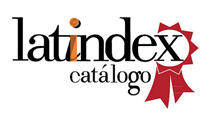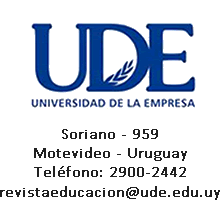ENSINO A DISTÂNCIA E EDUCAÇÃO FÍSICA ESCOLAR: ASPECTOS DA FORMAÇÃO DOCENTE A PARTIR DE UM ESTUDO DE CASO
ASPECTOS DA FORMAÇÃO DOCENTE A PARTIR DE UM ESTUDO DE CASO
DOI:
https://doi.org/10.47966/avan-inv.2022.917-28Palavras-chave:
Educação a Distância; Educação Física; Formação docente.Resumo
Cada vez mais diferentes processos formativos, em todos os níveis de ensino, estão acontecendo por meio de ferramentas tecnológicas, cenários que também impactam as práticas em Educação Física Escolar, área da saúde historicamente pensada tendo como base as práticas corporais presenciais. Sendo assim, o objetivo do presente estudo, recorte de uma pesquisa maior, é o de responder a indagação sobre como está acontecendo a formação de professores para a disciplina de Educação Física no formato de Educação a Distância-EAD, tomando como base as Universidades EAD do oeste do Paraná. Para tanto, a partir de uma revisão de autores sobre a Educação a Distância no Brasil e no mundo, a importância das tecnologias para as metodologias dessa modalidade e as características da Educação Física Escolar na aprendizagem virtual, realizou-se um estudo de caso com 24 acadêmicos da Educação Física Escolar EAD da região oeste do Paraná, os quais responderam a questionários aplicados por meio do google forms. Algumas conclusões importantes dizem respeito ao fato de que a EAD traz pontos positivos e possibilidades para os acadêmicos: flexibilização do tempo, espaço e preços acessíveis, o que contribui para o aumento de alunos universitários e a democratização do ensino. Todavia, a metodologia de ensino a distância é dependente dos recursos tecnológicos, o que pede novas posturas dos acadêmicos. Por fim, o estágio presencial em Educação Física Escolar está mudando, migrando para outras possibilidades, também baseadas nas tecnologias, as quais estão ressignificando a Educação e também a formação docente.
Arquivos adicionais
Publicado
Edição
Seção
Licença
Copyright (c) 2022 Eliane Mara Rodrigues da Silva Shibuya

Este trabalho está licenciado sob uma licença Creative Commons Attribution 4.0 International License.
Política para revistas de acceso abierto
Los autores/as que publiquen en esta revista aceptan las siguientes condiciones:
a. Los autores/as conservan los derechos de autor y ceden a la revista el derecho de la primera publicación, con el trabajo registrado con la licencia de atribución de Creative Commons (CC-BY), que permite a terceros utilizar lo publicado siempre que mencionen la autoría del trabajo y a la primera publicación en esta revista.
b. Los autores/as pueden realizar otros acuerdos contractuales independientes y adicionales para la distribución no exclusiva de la versión del artículo publicado en esta revista (p. ej., incluirlo en un repositorio institucional o publicarlo en un libro) siempre que indiquen claramente que el trabajo se publicó por primera vez en esta revista.













 This work is licensed under
This work is licensed under 
